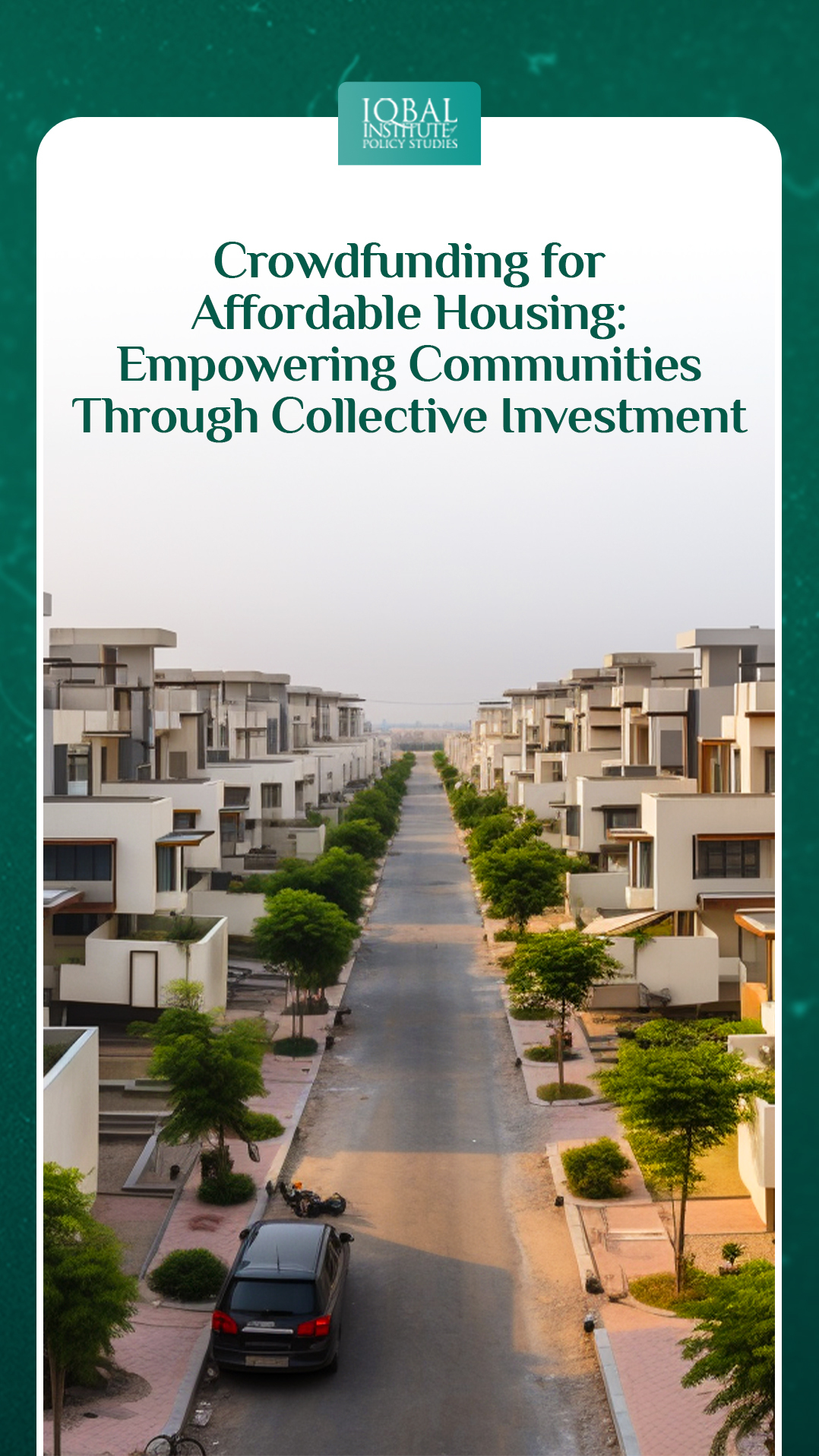Introduction
Affordable housing remains a critical challenge for many communities around the world. As traditional financing options fall short of addressing the ever-growing demand, innovative approaches are needed to bridge this gap. The alternative funding model of crowdfunding has gained popularity in recent years. This blog explores how crowdfunding can play a vital role in providing affordable housing solutions. By harnessing the power of collective investment and community engagement, crowdfunding has the potential to empower individuals and organizations to make a tangible impact in addressing the affordable housing crisis.
The State of Affordable Housing
To truly understand the significance of crowdfunding for affordable housing, it is essential to examine the current state of affairs. Rapid urbanization, rising property prices, and stagnant wages have contributed to an alarming shortage of affordable housing options. Low-income individuals and families are disproportionately affected, often struggling to secure safe and affordable homes. Traditional funding sources, such as government subsidies and bank loans, have limitations and cannot meet the demand adequately.
The Rise of Crowdfunding
Crowdfunding has emerged as a disruptive force in various industries, and affordable housing is no exception. The concept of crowdfunding revolves around pooling together small investments from a large number of individuals to finance a project. This democratized approach to fundraising has transformed the way projects are funded, eliminating the reliance on traditional sources. Crowdfunding platforms dedicated to real estate have provided a platform for individuals to invest in affordable housing initiatives and make a meaningful impact in their communities.
Advantages of Crowdfunding for Affordable Housing
Access to Capital
Crowdfunding opens up a new avenue for developers and organizations working on affordable housing projects to access much-needed capital. By connecting with a broader network of potential investors, projects can overcome financial barriers and move forward.
Community Engagement
Crowdfunding encourages community engagement and participation in solving the affordable housing crisis. Local residents and individuals passionate about affordable housing can actively contribute to projects in their neighbourhoods, fostering a sense of ownership and collective responsibility.
Diversification of Funding Sources
Relying on a single source of funding can be risky. Crowdfunding diversifies the funding base by attracting a wide range of investors, mitigating risks and increasing the financial stability of affordable housing initiatives.
Awareness and Advocacy
Crowdfunding campaigns provide an opportunity to raise awareness about affordable housing issues and advocate for policy changes. These campaigns can act as a catalyst for conversations around housing affordability and mobilize communities to take action.
Successful Examples
Several successful crowdfunding campaigns have demonstrated the potential of this model in addressing the affordable housing crisis. Projects like “Community Housing Initiative” and “Affordable Homes for All” have garnered significant support from individuals passionate about making a difference. These campaigns have not only raised funds but have also created a sense of unity and purpose within the communities they serve.
Challenges and Considerations
Regulatory and Legal Complexities: Crowdfunding for affordable housing involves navigating complex regulatory frameworks and compliance requirements. Different jurisdictions may have specific regulations governing crowdfunding activities, and understanding and adhering to these regulations can be challenging for both project developers and crowdfunding platforms.
Investor Protection
Protecting the interests of investors is crucial in any crowdfunding campaign. Ensuring transparency, providing accurate information, and implementing safeguards against fraudulent activities are essential to maintain investor trust. Establishing proper legal agreements, clear disclosure of risks, and adequate due diligence are critical in safeguarding investor interests.
Long-Term Sustainability
Developing affordable housing projects requires long-term sustainability and financial viability. Crowdfunding campaigns may generate initial capital, but ongoing funding and financial stability are crucial for the successful completion and maintenance of affordable housing initiatives. Developing strategies to ensure ongoing financial support and revenue generation can be a challenge.
Real Estate Development Complexity
Real estate development involves numerous complexities, including land acquisition, construction, permits, and regulations. Managing these intricacies requires expertise and experience. Crowdfunding campaigns for affordable housing must account for these complexities and have a robust plan in place to address challenges throughout the development process.
Scalability and Impact
While crowdfunding can have a significant impact on individual projects, scaling up to address the larger affordable housing crisis requires careful planning and coordination. Coordinating multiple crowdfunding campaigns, leveraging partnerships, and ensuring alignment with broader affordable housing strategies are necessary to maximize the impact of crowdfunding efforts.
Community Engagement and Inclusivity
While crowdfunding allows for community engagement, ensuring inclusivity and representation of diverse voices can be a challenge. Projects must actively engage and involve all stakeholders, including community members, local organizations, and vulnerable populations, to ensure their needs and concerns are addressed.
Market Volatility
Real estate markets can experience fluctuations and economic uncertainties that may affect the success of crowdfunding campaigns. Changes in property values, interest rates, or housing demand can impact the financial viability of affordable housing projects and the confidence of investors.
Addressing these challenges requires careful planning, collaboration with legal and financial experts, and a deep understanding of the affordable housing landscape. Overcoming these hurdles can strengthen the potential of crowdfunding as a viable solution for affordable housing and contribute to creating more equitable communities.
Conclusion
Affordable housing remains a critical challenge for many communities worldwide, and crowdfunding has emerged as a potential solution. Rapid urbanization, rising property prices, and stagnant wages have contributed to a shortage of affordable homes. Crowdfunding, a democratized funding model, offers advantages such as increased access to capital, community engagement, diversification of funding sources, and the ability to raise awareness and advocate for change. Successful examples have demonstrated its potential impact. However, challenges such as regulatory complexities, investor protection, long-term sustainability, real estate development intricacies, scalability, community engagement, and market volatility must be navigated. By addressing these challenges through careful planning, collaboration, and a deep understanding of the affordable housing landscape, crowdfunding can empower communities, diversify funding, and foster engagement. Ultimately, it has the potential to revolutionize affordable housing and create a more inclusive and equitable society where safe and affordable homes are accessible to all. Let us embrace the transformative power of crowdfunding and work together to make affordable housing a reality for everyone.
This article is written by Waqar Ahmad. Waqar is a Research Analyst at the Iqbal Institute of Policy Studies (IIPS).



Leave a Reply